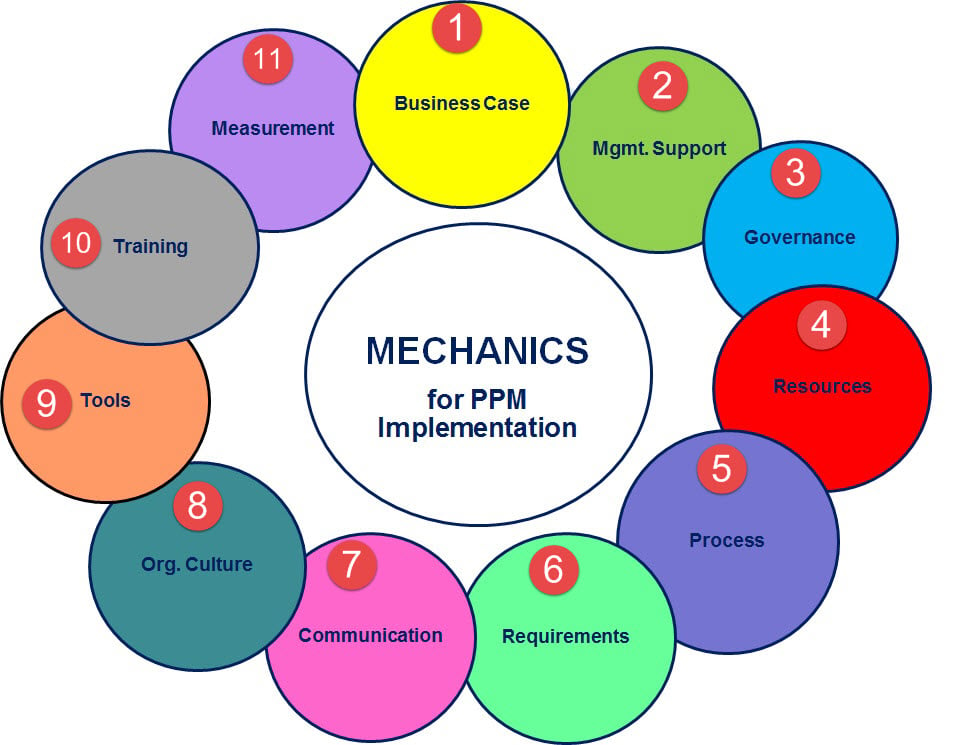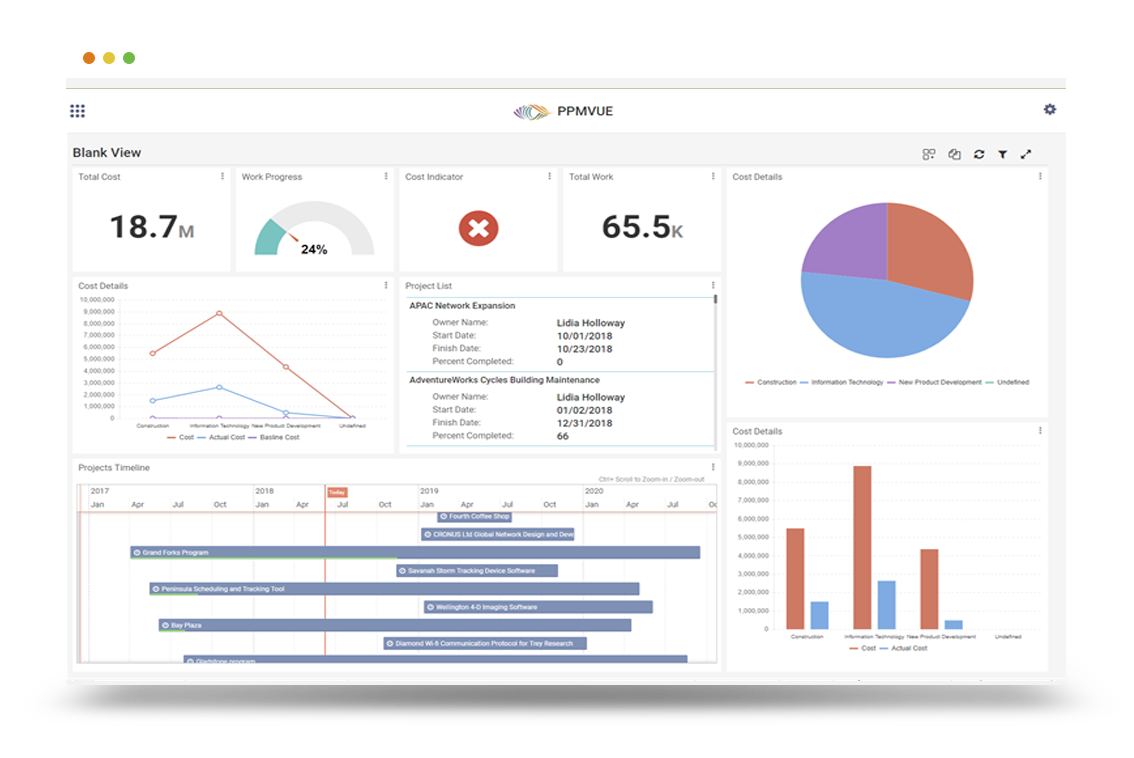In my previous blogs on PPM implementaion (links below), I spoke about the underlying need and the various challenges in PPM Implementation. In this blog I am going to discuss about the various driving mechanics of PPM implementation.
One of the most important aspect that organizations need to understand is that the implementation of PPM across the organization is a multi-year journey and cannot be achieved in a days effort.This blog will provide you a very high level overview of the mechanics involved in a successful PPM (Project Portfolio Management) implementation.
A successful PPM implementation primarily begins with a realization and understanding of the following 3 factors and then setting a realistic expectation based on them-
- Organization size
- Organizational maturity
- Scope of PPM Implementation
The research performed helped us identify 11 Knowledge Areas which are crucial to be addressed during a PPM implementation starting with “Defining a Business Case” until “Mesuring the implementation success”.
KNOWLEDGE AREAS OF PROJECT PORTFOLIO MANAGEMENT

1. Business Case – This includes processes that are used to develop, justify, manage and evaluate business cases throughout the life-cycle of the PPM Implementation.
2. Management Support – This area includes processes to plan and seek management support, actively involve management in PPM activities, retain management support throughout the PPM implementation.
3. Governance- A governance committee in an organization keeps track of all the PPM implementation activities and evaluates the PPM processes that are established. This process area includes processes to establish a fully functional governance model in an organization.
4. Resources – The resource allocation for PPM implementation is highly dependent on size of the effort. This process area includes processes to identify resource needs for the PPM implementation in an organization. The roles and responsibilities for all the resources involved in the implementation have to be clearly defined so that there is no overlap or gap in work being performed.
5. Process – Every PPM implementation is unique in its own way, as no two organizations are same. This knowledge area covers analysis of existing PPM needs based on organization size and current maturity, defining full-fledged processes that needs to be followed in order to implement PPM effectively.
6. Requirements – This knowledge area comprises of understanding and gathering requirements from various resources and individuals, documenting the obtained requirements and tracking them to closure.
7. Communication – Communication is the key to success portfolio management implementation. There is a great untapped potential in communication of the PPM to the employees. It is important to make the employees understand as why the resources are deployed or allocated the way they are and this enables them to see clearly as how they can contribute to the expertise or parts of the program. Another important aspect is keeping the management informed and deciding as how to channel the excitement of senior management. This knowledge area consists of processes to plan and manage communication throughout the PPM implementation.
8. Organization Culture – PPM implementation definitely transforms the way the organization does it business. Hence it is the responsibility of the PPM implementation team to make all the employees believe that the implementation is going to help them transform. This knowledge area covers the processes to understand and document the existing organization culture, develop strategies to handle the changing organization culture and implement a dynamic approach to sustain the new organizational changes.
9. Tools – Organizations can start the PPM implementation generally with the tools available within the organization. Later, depending on the available funding and needs of the implementation they can purchase tools from outside vendors. This process area includes processes to analyze, choose and test tools required for effectively implementing and managing PPM implementation
10. Training – Training, coaching and awareness are a big part of a successful PPM implementation and deployment. The training process area includes processes to identify the training needs, develop appropriate training materials and training methods for successful PPM implementation.
11. Measurement – This knowledge area includes all the processes required to define the metrics and methods to measure the effectiveness of PPM implementation. This also includes processes that measures the current state of the organization.
These 11 diffenrent knowledge areas prove to be the critical elements for a successful PPM implementation. Considering the global presence of organizations these days, an overall PPM implementation typically takes somewhere around 5 years on an average for large and mature organizations. If there is less distribution of projects across the globe and accountability through those projects, then the PPM implementation could be done quicker. However, typically it takes a minimum of 5 years for organizations to get closer to looking at their overall organizational portfolio. Organizations can also consider doing the implementation in incremental success of 4-6 months, which would also help them to evaluate the effectiveness of the implementation at various stages.
Looking for a PPM Tool? Does your company want a PMO? Contact us today at 1.888.444.EPMA or [email protected].
For more details & kick start your project management journey, sign up for our Microsoft Training Classes or send us an email.
I hope you find this blog post helpful. For more tips and tricks on Project Management, please visit www.epmainc.com

